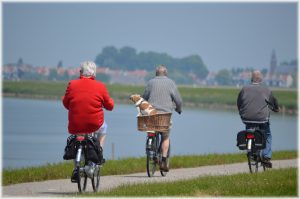As we age, our bodies will grow frail, our immune system will become more susceptible to disease, and many hours will be spent longing for the return of our youthful days. Many individuals have believed this to be the natural course of life, that when we get old we become weaker. Norman Lazarus and Janet Lord are two professors at the University of Birmingham challenged the common belief in a study which identified the effects old age may have on the health of adults aged 55-79.

Source: Flickr
Previous studies have shown that an increase in age has resulted in a decreased function of the immune system. As humans age, their cell count is lowered and many cells begin to function less efficiently. Most importantly for the immune system, T cells, which are responsible for the body’s response to diseases, become less functional. The combined effects of cell count loss as well as lack of efficiency indicates that there’s a yearly loss of about 2-3% of immune system efficiency. The following video briefly explains the function of the immune system.

Lazarus and Lord’s study was conducted to determine if regular exercise could affect T cell count in elderly individuals. They compared the immune profiles of elderly individuals who engaged in regular cycling activity against age-matched individuals who did not engage in regular exercise of any kind. Their findings indicated that the individuals who regularly exercised displayed lower levels of the cells responsible for initiating T cell death, where individuals who did not regularly exercise had higher levels of those same cells.

Source: Pexels
Professor Lazarus, aged 82, conducted the study on himself as well. Being a regular cyclist, his immune profile matched up to that of a 20-year-old’s! Other regular cyclists found that not only was their immune system stronger, but their body fat levels matched those of a 19-year-old. Body fat levels have been linked to a number of heart diseases and immune system efficiency has been linked to cancer development. This study provides a potential gateway to reducing the risk of contracting both of those diseases.
Many of the participants who engaged in the study indicated that they engaged in physical activity for increased fitness levels as well as for personal enjoyment. It was unknown to them that, internally, their body was functioning the same as it did many decades ago. So in your old age, if you ever find yourself pondering how to turn back time to when you were young and agile, it might be a good time to get on a bicycle and go for a long ride!

Source: Pexels
By: Faraz Kazi


